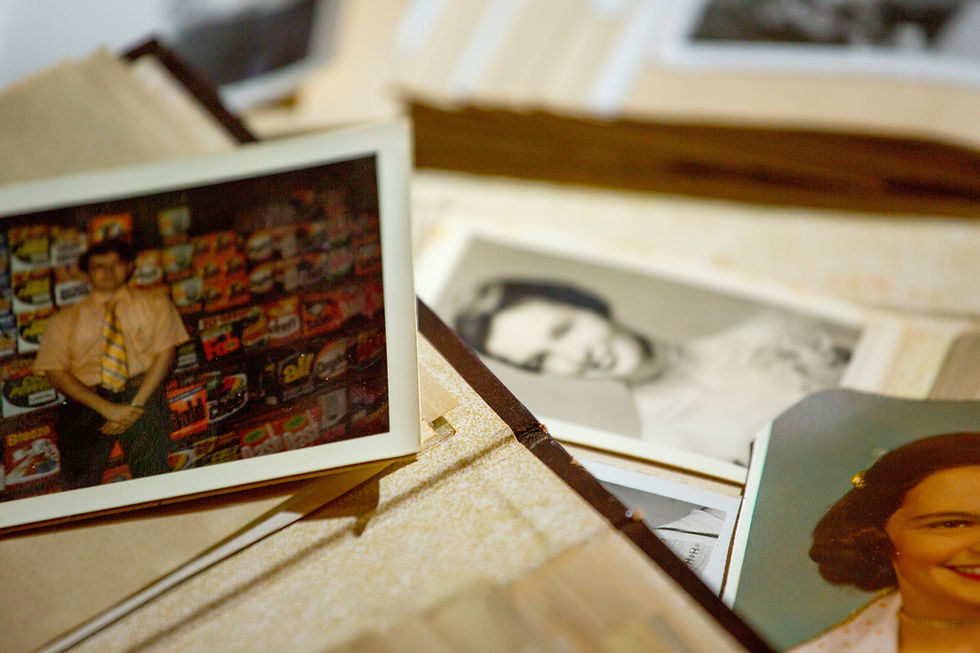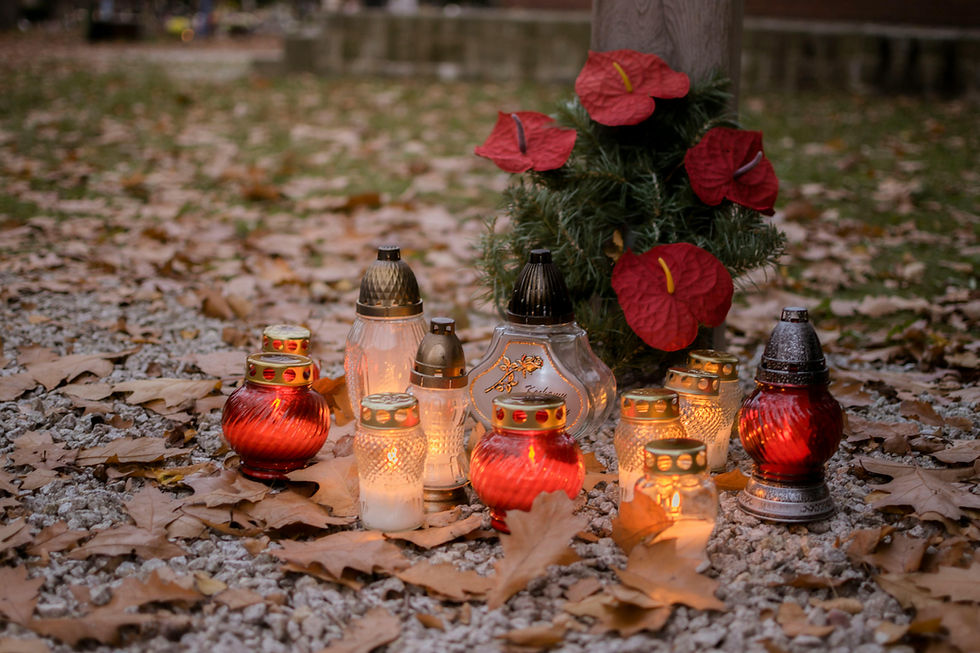Legacy and Love: How Remembering the Past Helps Us Move Forward
- Oliver Remington

- Aug 11, 2025
- 4 min read
I remember the day I stumbled upon an old shoebox tucked away in my attic. Inside were yellowed photographs with faded edges, capturing moments from my grandparents' lives: my grandfather in his army uniform, smiling broadly despite the hardships of war, and my grandmother holding a bouquet of wildflowers on their wedding day. As I sifted through them, a wave of emotions washed over me, tears mixing with unexpected laughter at forgotten stories. It felt like opening a portal to the past, where love and loss intertwined. What if the key to moving forward lies in looking back? In our fast-paced world, we often rush ahead, but honoring family legacies through photos and narratives can be a profound act of love. It not only preserves memories but also sparks personal growth through memories, fostering resilience and a deeper appreciation for the stories unfolding in our own lives. This blog post explores that emotional journey, showing how these tangible mementos can heal our hearts and propel us toward a brighter future.

The Emotional Journey of Remembrance
Engaging with old photos and family stories often begins with a bittersweet tug at the heart. You might feel an initial pang of sadness, like the ache of missing someone dearly loved. But as you linger, that grief softens into gratitude. Think of it as a chain: nostalgia triggers reflection, which leads to understanding, and eventually, joy emerges from the shadows. For instance, flipping through a photo album, you inhale the faint musty scent of aged paper, and suddenly, a black-and-white image of a family picnic revives the sound of laughter echoing across a sunny field.
Psychologically, this process mirrors how our brains process emotions. Initial sorrow acknowledges loss, but weaving narratives around those images transforms pain into connection. You start to see not just what was lost, but the enduring love that shaped who you are. In my experience, sharing these stories with loved ones amplifies the healing, turning solitary reflection into shared empathy. It's a gentle reminder that honoring family legacies isn't about dwelling in the past; it's about embracing the full spectrum of feelings to find peace.
Inspiration for Personal Growth Remembering the Past
Photos and narratives act as mirrors, revealing lessons that inspire us to evolve. Consider a few real-life examples that highlight this transformative power. First, imagine discovering your grandmother's wartime letters, filled with tales of perseverance amid scarcity. Her words might teach you the value of resourcefulness, encouraging you to tackle your own challenges with renewed determination, like starting that dream project you've postponed.
Another example: Family photos showing generations repeating patterns, such as a cycle of unexpressed emotions, can prompt self-improvement. You spot the stoic expressions in old portraits and decide to break the mold by fostering open communication in your relationships. This insight turns reflection into action, helping you build healthier bonds.
From a broader view, these mementos encourage personal growth through memories by highlighting strengths you inherit. A faded snapshot of your father fixing a broken fence might inspire you to cultivate patience and problem-solving in your career. By actively engaging with these legacies, you weave their wisdom into your story, growing into a more compassionate version of yourself.
Building Resilience Through Legacy
Remembering the past builds a foundation of strength, creating continuity that bolsters us during tough times. Psychologically, experts note that reflecting on ancestral stories enhances emotional fortitude, as it reminds us we're part of a larger tapestry of survival and triumph. Culturally, many traditions, like Indigenous storytelling circles or Asian ancestor veneration, emphasize this: honoring forebears instills a sense that we're supported by invisible threads of love.
Take a multi-perspective lens. In Western therapy, narrative practices help clients reframe hardships by linking them to family resilience, reducing isolation. In contrast, practices like Mexico's Día de los Muertos use photos on altars to celebrate endurance, blending grief with communal strength. For you, this might mean curating a digital memorial on a site like A Life Portrait, where photos and stories create a living portrait that reinforces your inner resolve.
Ultimately, these acts foster resilience by showing that love from the past equips us for the future. When life feels uncertain, glancing at a photo of a loved one's determined gaze can reignite your own courage, turning vulnerability into power.
A Deeper Appreciation for Our Ongoing Stories
Reflecting on legacies sharpens our focus on the present, transforming routine days into chapters of an unfolding narrative. Suddenly, a simple walk with your pet becomes a moment to capture, knowing it could one day inspire others. This mindfulness cultivates gratitude, as you recognize how past loves shape your current joys.
By honoring through photos, you start cherishing everyday interactions as potential legacies, encouraging intentional living. It's about seeing your life as a blank page continuing a cherished book, filled with love waiting to be documented.
In conclusion, legacy and love intertwine to guide us from emotional depths to heights of growth, resilience, and appreciation. We've explored how photos and narratives heal, inspire, and strengthen, turning backward glances into forward strides. Today, I encourage you to gather your photos, perhaps creating an online memorial or living portrait on A Life Portrait. Start weaving your legacy by sharing a story with someone close; it's an act of love that echoes eternally. As Maya Angelou once reflected, "I've learned that people will forget what you said, but people will never forget how you made them feel." What memory will you honor today to light your path ahead?
Podcast About This Post
Sources
American Psychological Association (apa.org) on narrative therapy and emotional healing.
BBC Culture (bbc.com/culture) for insights into global remembrance practices.
The New York Times Well section (nytimes.com/section/well) for articles on resilience and family stories.



Comments